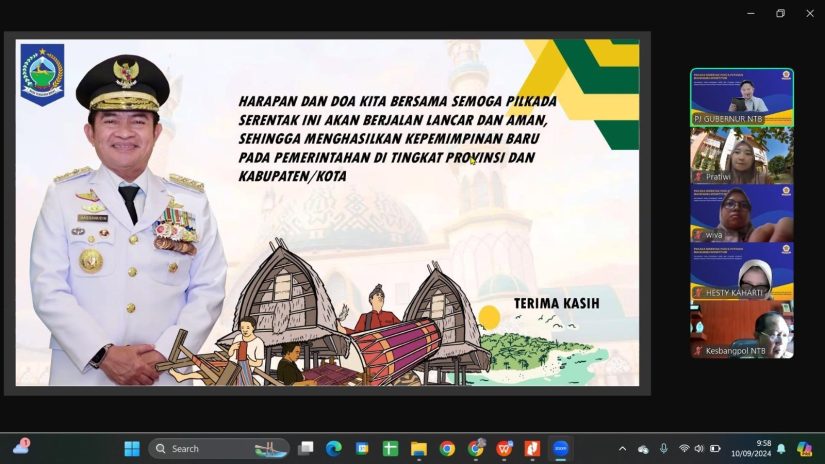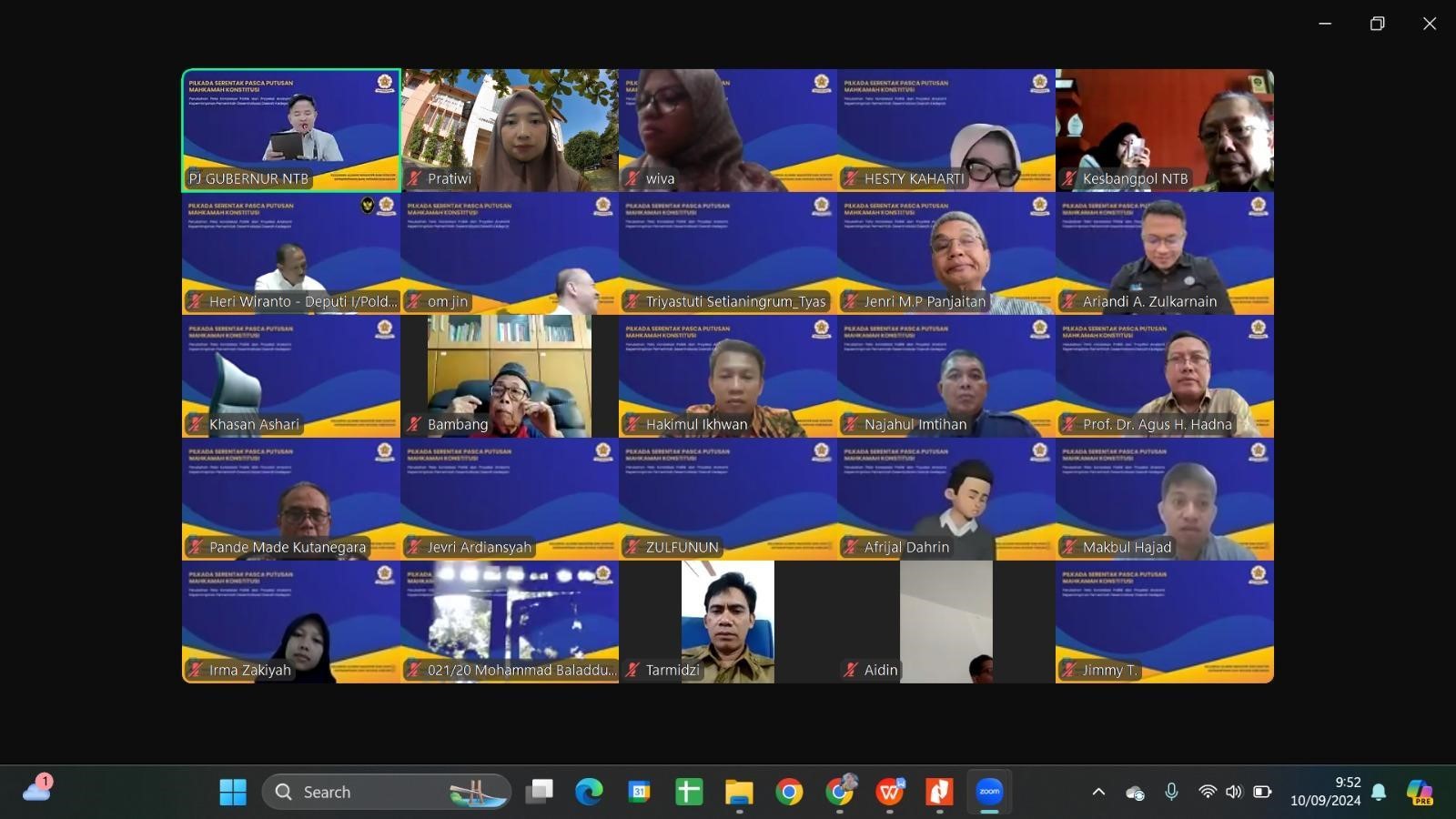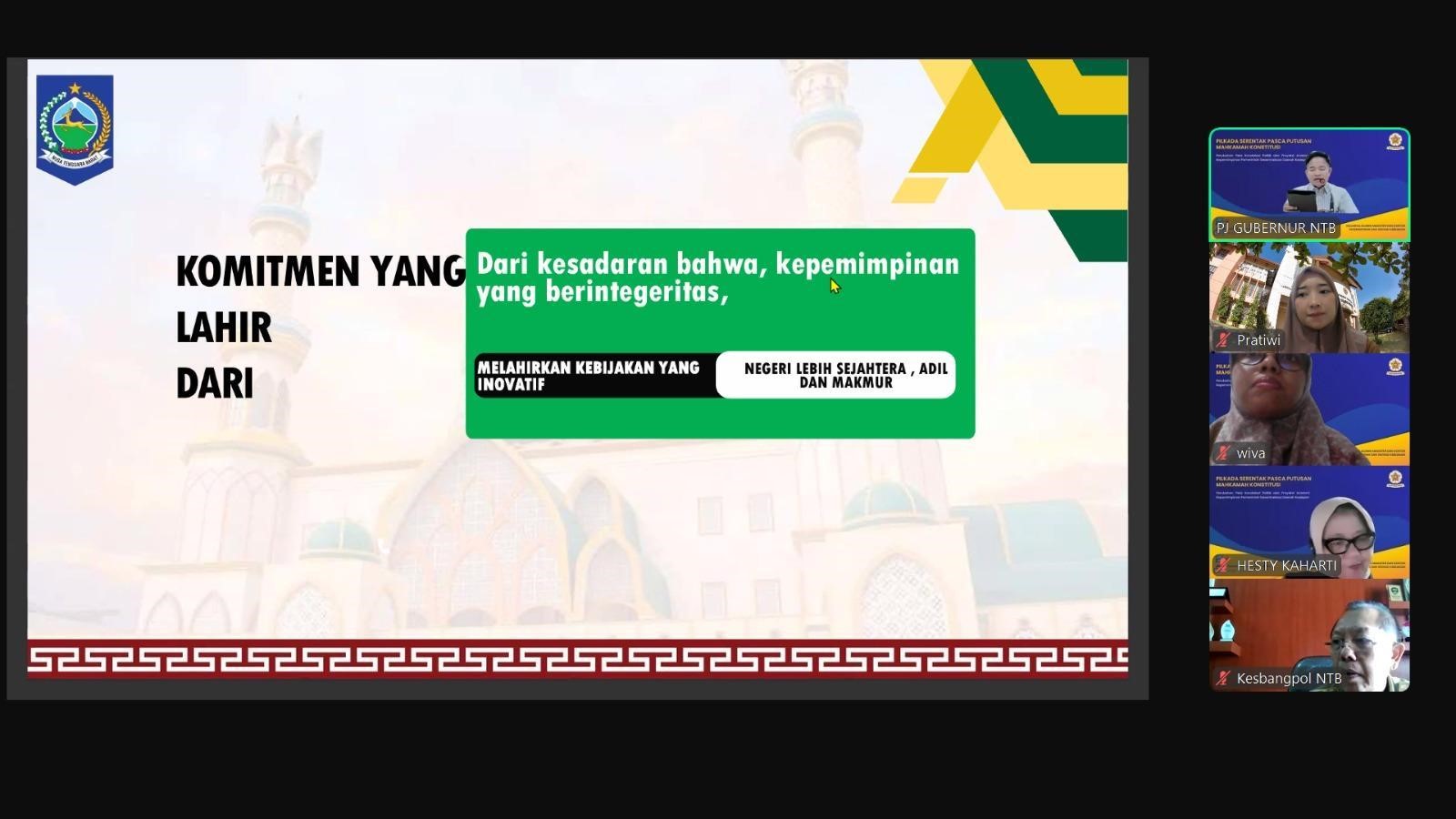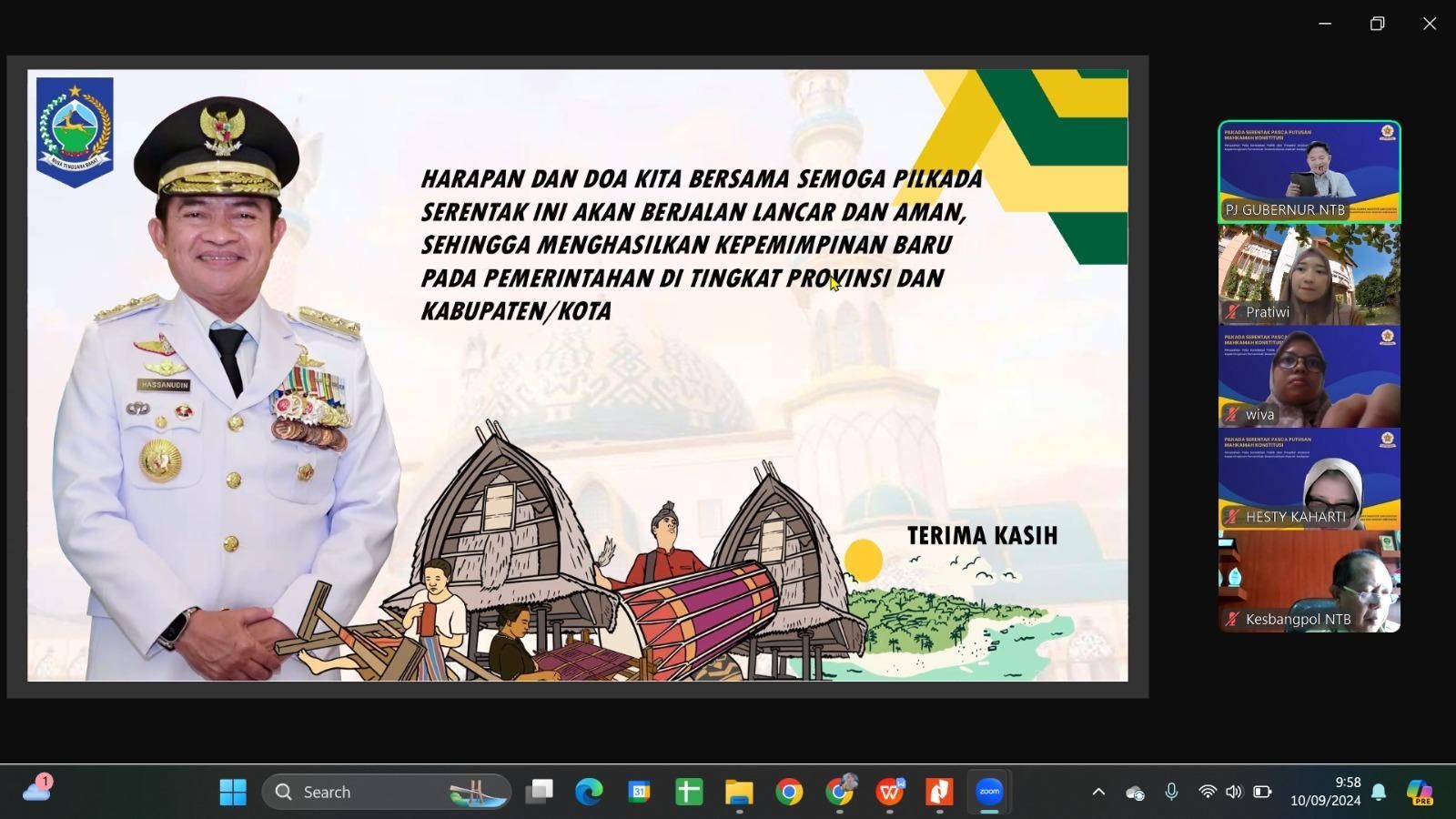
Yogyakarta (10/9), the Masters and Doctoral Alumni Family of Leadership and Policy Innovation (KAPIMGAMA) Gadjah Mada University Postgraduate School (SPs UGM) held a webinar entitled “Simultaneous Regional Elections After the Constitutional Court Decision: Changes in the Constellation Map and Anatomy of Future Regional Decentralized Government Leadership” . Participants who attended this webinar came from various different profiles, including students and lecturers from various universities, members of Non-Governmental Organizations (NGOs), and the general public who are observers of public policy issues.
Competent speakers in this webinar come from various backgrounds, namely Major General TNI Dr. Heri Wiranto from government circles, Prof. Djohermansyah Djohan who is an expert on regional government and autonomy, Titi Anggraini, SH, MH, from NGO (Association for Elections and Democracy – Perludem), Dr. Wawan Mas’udi, S.I.P., MPA. from UGM academics, Major General TNI (Ret.) Dr. Hassanudin, S.IP., M.M. and Dr. Deddy Winarwan, S.STP., M.Si, representative of acting regional heads, and Rahmat Bagja, SH., LLM, chairman of the Indonesian Election Supervisory Board.
“Our collective hope and prayer is that the simultaneous regional elections will run smoothly and safely, resulting in new leadership in government at the provincial and district/city levels,” said Major General TNI (Ret.) Dr. Hassanudin, S.IP., M.M. on his speech at the opening of the event.
One of the crucial objectives of holding this activity is increasing political awareness and election literacy among the public with knowledge about the 2024 Simultaneous Regional Election process, including the important stages and role of the community in the election. The public is also expected to be able to actively participate in overseeing and supervising the simultaneous regional elections, therefore they are able to contribute to maintain the transparency and integrity of the election process.
Organizing this webinar is a strategy to provide understanding to the public on holding simultaneous regional elections and the various risks of problems that can arise during the process, so that the public can oversee the process more wisely and critically.
Tags: regional elections, politics, constitutional court, non-governmental organizations, government, academics, SDG 4: quality education, SDG 9: industry, innovation and infrastructure, SDG 11: sustainable cities and settlements, SDG 16: peace, justice and good institutions resilient, SDG 17: partnerships to achieve the goals
Author: Siti Muyasaroh



